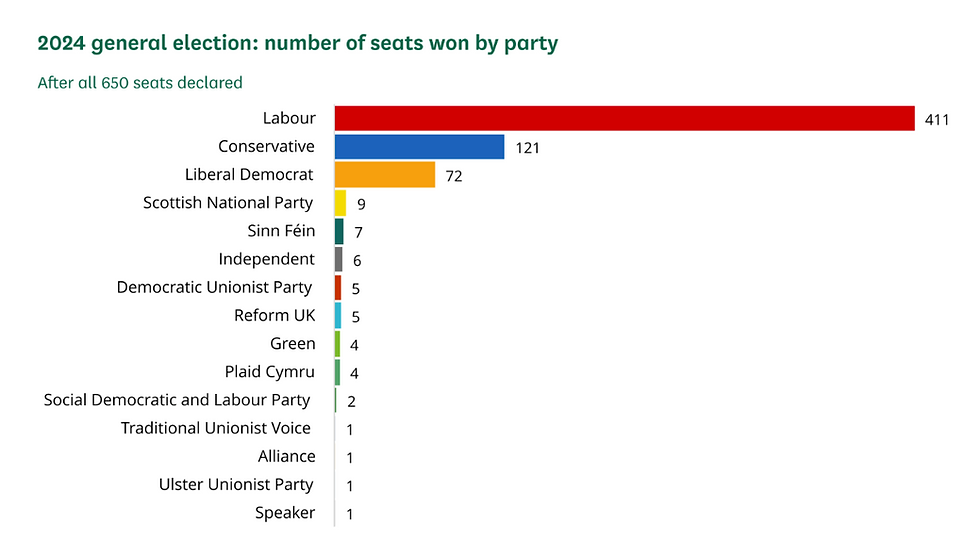Why We Believe Millennials Can Close The Wealth Gap
- david42834
- Feb 16, 2022
- 3 min read

The current COVID-19 crisis has put a spotlight on the social and financial inequalities that exist within the UK and other western countries. For instance, here in the UK where African heritage households are likely to have x10 times less wealth or savings than their white British counterparts[1].
This wealth gap is not a recent phenomenon which occurred overnight and has been a cyclical issue inherited from previous generations.
However, it is not all doom and gloom! We believe that the next generation is well placed to close this wealth gap. Millennials of African heritage through exposure, knowledge and access to professional jobs & entrepreneurship have the greatest opportunity to create new multi-generational wealth.
Here are some of the reasons we believe so:
1. Changing attitudes to investment — More millennials are striving for financial independence and prosperity. Achieving financial freedom is a key goal and there is now more action to better understand financial management and how to invest wisely. Through engaging with digital platforms like Wealth8, millennials can be supported to achieve their goal of financial freedom.
2. Millennial investors become a force — Traditional wealth management did not actively cater to millennials and many would have put off by the high level of fees charged by wealth managers. However, the barriers to wealth management are slowly being removed with the availability of digital solutions that are low cost, quick to use and include an element of the human touch. Millennials who are interested in receiving passive income as a means to boost their wealth now have solutions better suited to their unique financial needs. Contrary to stereotypes about spending habits, millennials are just as budget-conscious as other generations, however the ways in which they manage their finances are different, by embracing digital technology and tools to do so.
3. Access to technology and financial tools — Millennials are more suited to the rise in digital solutions. Millennials are, by far, the most digitally savvy investor group overall, according to Accenture’s Wealth in the Digital Age Investor survey[2]. Therefore, self-investing is a given for millennials who are put off by traditional wealth management. Millennials have been quick to adapt to technology in other aspects of their finances. The provision of technology has given access to simple, affordable and targeted financial literacy tools, which will increase participation in the financial markets; allowing more to benefit from long-term wealth creation.
4. Building wealth through entrepreneurship — In the age of the ‘side hustles’, millennials are starting businesses at a rapid rate, which is also a great step in building wealth. There are more resources being made available to support them, with programs in the UK, like Foundervine, YSYS, ColorinTech, Cornerstone Partners and Impact X, creating more equal opportunities that were not made available to previous generations. This will result in more money being invested back into the building and expanding communities, which builds wealth further.
5. Increased representation in the professional labour market — More millennials of African heritage are currently incorporate employment in the UK, than was the case with the “baby boomer” generation. Whilst there are still major disparities in the labour market, millennials now represent a significant demographic in the UK, who are employed in corporate jobs. We hope to see this trend to improve further.
6. Further increased representation at senior positions in the labour market — Corporate and Government Initiatives in the UK to increase representation at senior positions should create an environment where future earning potentials increases. A Mckinsey report suggests there are 4 elements that can contribute to a family’s ability to surmount the wealth gap and to build wealth across generations; these are family income, family savings, family wealth and the community in which the family lives.[3] Of these 4 elements, family income and family savings are the most important, the building blocks of wealth creation. These initiatives will directly impact an individual’s ability to increase income and savings, which will have a positive knock-on effect on wealth creation.
The wealth gap will not be closed overnight. It is the small steps that you begin to take now, with saving, investing, and understanding the wealth gap, which will begin to move the needle in the long term. Our generation has a greater understanding of the importance of wealth creation through work and entrepreneurship, and with the right support, will be able to effectively continue to save and invest early to build future wealth. The strides our generation take today should create a more equal landscape for future generations. Building generational wealth is not a sprint but a marathon; financial education and planning is the training!




Comments